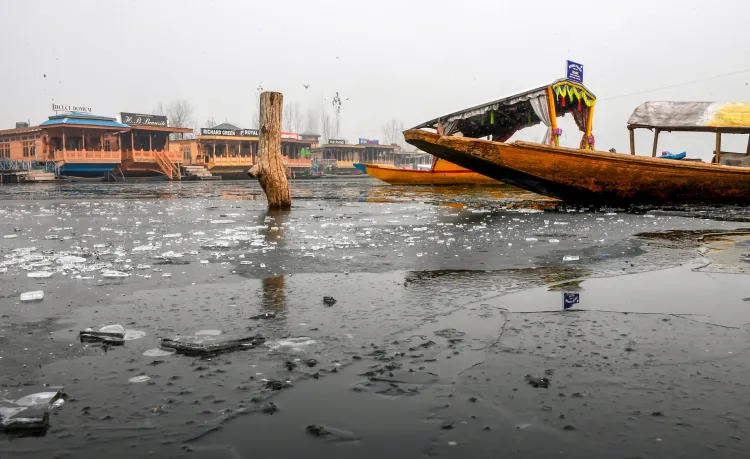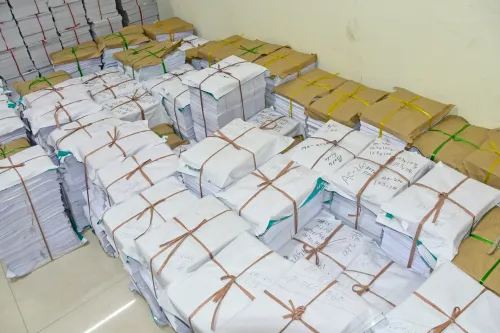Dal Lake in Kashmir Encases Itself in Ice After Days of Frigid Temperatures

Srinagar, Dec 26 (NationPress) As nighttime temperatures persist at several degrees below freezing in Kashmir, the renowned Dal Lake has frozen over entirely on Thursday.
The minimum temperature recorded in Srinagar was -7 degrees Celsius, while Gulmarg and Pahalgam experienced temperatures of -6 and -8.6 degrees, respectively.
In Jammu city, temperatures reached 6.6, Katra town 8, Batote 1.7, Banihal 0.7, and Bhaderwah -1.1 degrees.
The Kashmir Valley remains enveloped in severe cold, leading to nearly deserted markets, streets, and major roads during the morning hours due to the extreme chill and dangerously slippery conditions.
Boatmen have largely abandoned their efforts to navigate the partially frozen Dal Lake in Srinagar as the ice thickens and solidifies on the lake's surface.
Numerous houseboats along the banks of the River Jhelum seem to be stranded due to the surrounding frozen waters.
Long icicles and frost have become prevalent in both Srinagar and the wider Valley. Many water taps remain frozen, and residents have reported a shortage of drinking water for the past four days.
The Meteorological (MeT) department anticipates that the dry, cold weather will persist for at least the next 48 hours, with no significant changes expected until the first week of January.
The extreme winter period known as ‘Chillai Kalan’, which lasts for 40 days, began with intensity on December 21 and will conclude on January 30.
Experiencing a clear, cloudless sky is a rare luxury during the Chillai Kalan days.
The overall winter gloom can be quite disheartening for the populace, especially as electricity remains inconsistent, forcing locals to rely on traditional firewood in rural areas to combat the bone-chilling cold.
Despite Chief Minister Omar Abdullah's presence in Srinagar, there has been no improvement in the electricity supply. He visited local hospitals on Wednesday to ensure that healthcare services remain prepared to face the challenges brought on by the intense winter conditions.










